Denis Joyce farms in the townland of Brownsgrove, a few kilometres from Tuam. He is married to Karen and they have four daughters. His father Joe was 42 when he married Sheila and they went on to have six children. Joe was in the pig business but was worried about the safety of his young family so moved into dairying.
“Daddy thought sows and young children wasn’t the best thing and he got out of pigs in 1966-67 which was a good year to do it. We had 47ac and 18 cows and their followers supplying Arrabawn Co-op. My father bought more land but as it was too far away for the dairy cows, he reared beef animals on that land.”
Shock diagnoses
The arrival of milk quotas stifled growth for 30 years. A limited grass platform didn’t help dairy expansion and today Denis milks 40 cows. 
But quotas, dairy expansion and more land were the least of his worries when he was diagnosed with cancer in 2011.
“I hadn’t been feeling great for about a year. I was awful tired and only picking at my food. Then I was diagnosed with cancer of the glands. I was very down when I got the news, but once I had one night’s sleep over me, I told myself I was going to be positive from then on.”
Denis went for surgery and chemotherapy and just kept going. “The steroids gave me fierce energy but then it would run out and I’d be wiped.
I was advised to give up farming but I’ve been milking for 40 years, ever since I was 12 and do you know, it kept me sane
“To be honest, the drugs were as bad as the cancer. It took me two years to come back from it. It was an incredibly tough journey but I’m good and I’m here and I can’t ask for any more than that.”
Denis says his interest in farming wavered while he was battling cancer. “I just did the essentials. I was advised to give up farming but I’ve been milking for 40 years, ever since I was 12 and do you know, it kept me sane.”
A chance meeting
It’s only a while back since Mona O’Donoghue-Concannon had her 20-year secondary school re-union. Her former classmates weren’t a bit surprised she is a full-time farmer. “They told me I could never have been anything but a farmer, even though I thought I might make a good nurse,” she says.
She did give nursing a try, but gave it up after two years to do a business degree. “I had a little daughter by then and my aim was to have the business degree and a childcare qualification and manage a community crèche.”
But a chance encounter in Supermacs, of all places, changed all that. “I’d been on a night out with friends and hit for a snack box in Supermacs. I spotted this lad eating chips and said to my friends, ‘He must be a farmer’. So I introduced myself and the rest is history.” That was 2006 and by 2009 Shay and Mona were married.
Traditional farming
Mona grew up on a suckler farm on Burren ground near Kinvara. “My parents, Jimmy and Mary, farmed there along with my brother Joe and it was a big move for them when they put up the first slatted shed in 1999.”
Mona and Shay are farming on three different parcels of land, one of which they own and the others they lease. They are in dairy, beef and sucklers. In 2015 they converted a beef farm into a dairy farm. Milk is supplied to Arrabawn and Mona’s brother, who has special needs helps out on the farm.
Super levy sting
John Martin’s family have farmed at Massmore for three generations. The farm is only a few kilometres from Tuam and bounds the M17 on one side. “My grandfather bought the place in 1942 and he paid £2,200 for 230ac. My father TJ was born in 1946 and he 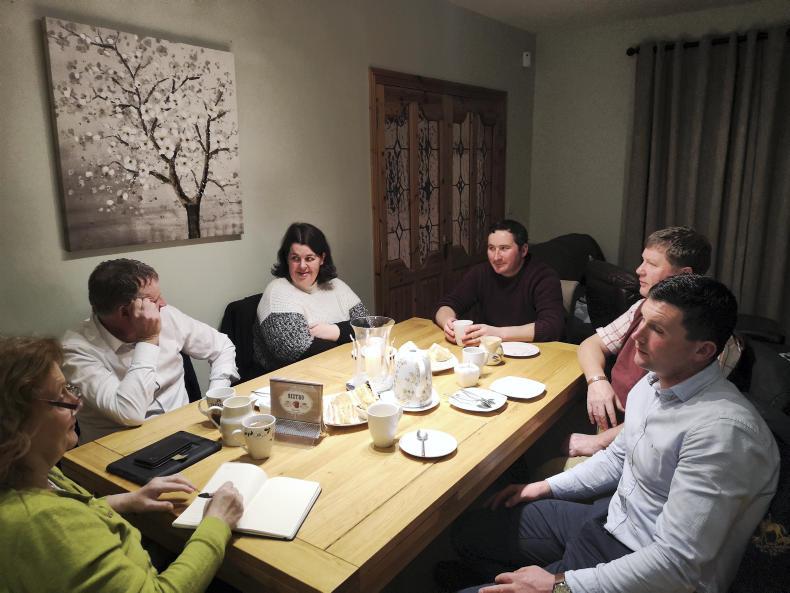
grew up on the farm. He married Kathleen and they were in beef and sheep all their lives.”
The family home dates from 1910 and the year is chiselled into the stone of the building and that always fascinated John. “I often wondered what big commitment would we make in 2010.”
And he was right to wonder, as in 2010 the family changed their farming system, bought 125 heifers and moved into dairying.
“It was a big decision, especially for dad. Also, my younger brother Michael started farming with us. Quotas were still in place so we had to lease for five years.”
John has vivid memories of 2014 – the last year of the quota regime.
It was an unmerciful blow and we are lucky it didn’t break us
“Weather-wise we had a great spring and summer and the spring of 2015 was equally good. It was the last year of quotas and, like most dairy farmers, we were expanding. The country went over quota and we were hit with a €130,000 super levy bill. It was an unmerciful blow and we are lucky it didn’t break us. I won’t ever forget being asked if we’d pay in one lump sum or 29 monthly payments.”
Off-farm opportunities
Before going farming John studied at Mountbellew Ag College and went to GMIT to do an agri business and rural development degree where he won no less than three student of the year awards from FBD, Connacht Gold (Aurivo) and Bank of Ireland. He worked with FBD for a spell and still found time for football, but a bad ankle injury knocked him out in 2009.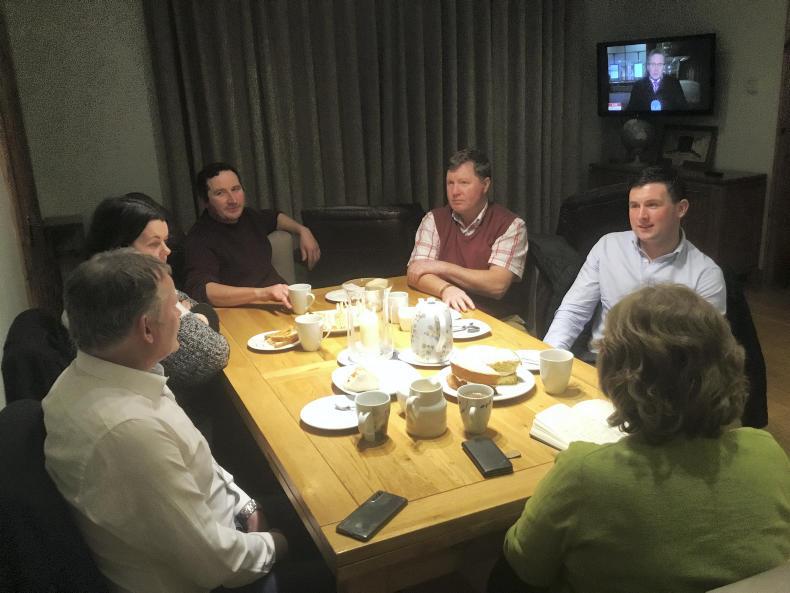
That year, John went to work on a 400-cow dairy farm in New Zealand and was hooked. “It got me thinking about what we were doing at home. We needed one full-time labour unit and with my brother Michael finishing college it seemed a perfect time for us to go farming together.” Two other brothers work off farm.
Post-quota, the brothers put their heads down and in the past five years have grown cow numbers to 330 and farm in excess of 500ac today.
In 2016-17 they renovated the family farmhouse and also a lovely old granary where John and his brother Michael now live. And in a challenge to a future generation, the date 2010 is chiselled into the milking parlour wall.
Going strong for over 100 years
Brendan Divilly farms outside Glenamaddy, is married to Aileen and they have four children aged 26 to 18. 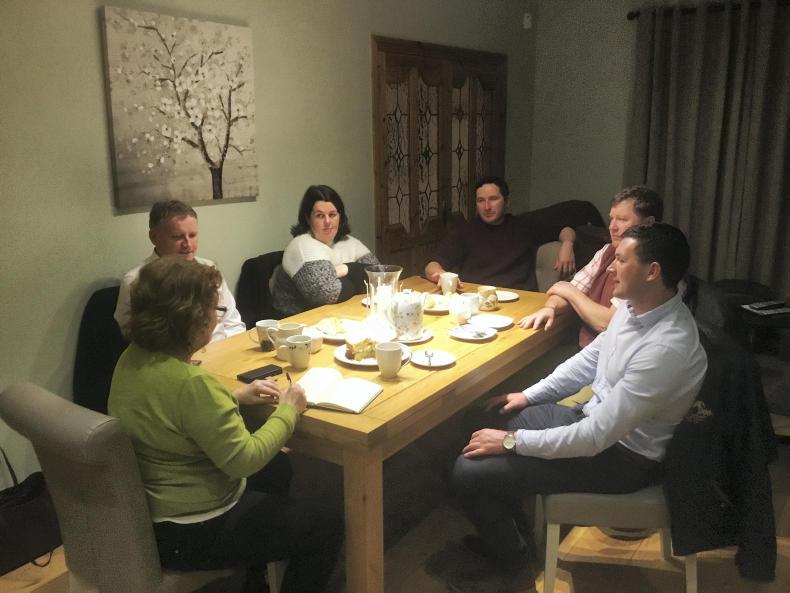
The family has always been in hens and the agri store established by his grandfather John in Leitra village in 1907 is still going strong.
“There wasn’t much money around back then and eggs were used for barter. My grandfather had a travelling shop and would collect eggs and give groceries in return. That started the shop.
“My dad, Joe, was born in 1934 and he continued the business, attending the markets in Galway on a Friday to sell eggs. In 1963, he built his first commercial houses for 3,000 hens as he could see there was a shortage of eggs.”
I went to London for a few months in 1984 and when I came home my dad said wasn’t there enough work for me
The business continued to grow and by 1983 the Divilly’s had 12,000 hens in commercial houses. Brendan then got involved.
“Sure I was working here from the time I was in national school. I went to London for a few months in 1984 and when I came home my dad said wasn’t there enough work for me here at home. And I’m here since.”
New opportunity
Brendan kept growing the business supplying restaurants and shops. In 1992, he married Aileen and then in 1999 disaster struck when the family home and store was burnt to the ground. In 2000, they rebuilt it all and in 2001 Brendan came off the road selling eggs as he needed to be in the business every day.
“In 2010 we bought 35ac from my father-in-law and ploughed and re-seeded it.
“I could see a growing demand for free-range eggs so in 2015 we put up a free-range unit for 15,000 birds on that land. It’s split into four paddocks and is really well fenced and the hens are happy out.”
Brendan has added two new commercial houses that have a capacity for 47,000 birds along with the 15,000 free-range unit. He sells under the Corrib and Corrib free-range brands.
Make time for family
Good-quality family time is important to Cathal Joyce who also farms in the townland of Brownsgrove. The youngest of six (and brother of Denis) Cathal went to Mountbellew Ag College. He then worked for 13 years with Connacht Gold, now Aurivo and a further four years with Tuam Farm
Supplies
All the time he was part-time farming and now he is lambing down 150 ewes as well as having a beef and suckler enterprise. In 1999, he inherited land that the family had bought eight years earlier. He is married to Maureen and they have three children under eight.
“I farm and look after the children. Farmers often think the grass is greener if in a job but it’s often not the case. There’s fierce pressure on families and they need two incomes and that can be hard on adults and children.”
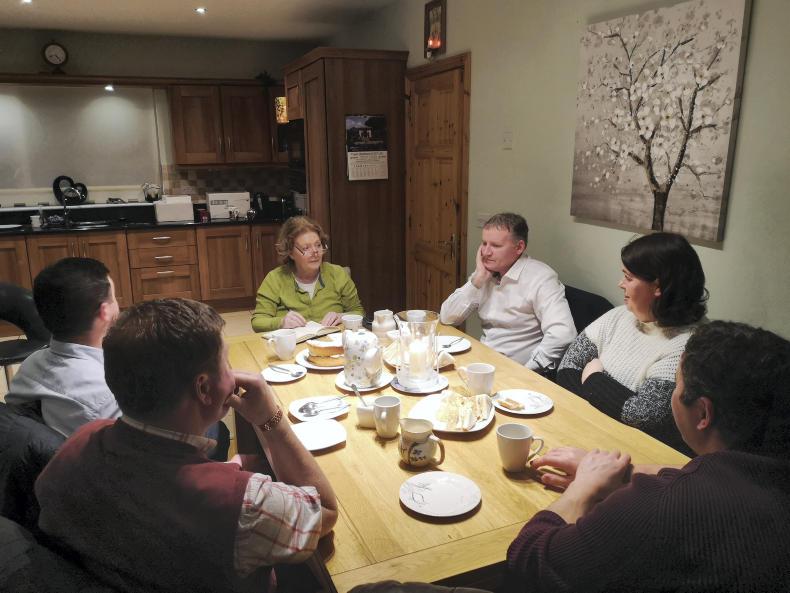
Sincere thanks to TJ and Kitty Gormley for hosting this Round The Kitchen Table chat and making us feel so welcome on the night.
Looking forward
Mona is positive she will be farming in 10 years’ time. Mind you she won’t be following Teagasc advice. “We have 50 dairy cows and 40 sucklers. Teagasc would tell me to put in 100 dairy cows, but I like our system and it suits our land.”
Cathal Joyce agrees saying that one enterprise compliments the other and it keeps cashflow coming. The last five years has been about dairy expansion but now John Martin wonders what’s next.
“You’d wonder how far down the road the authorities can see when in 2015 we had the excitement of being quota free. Five years have passed and now carbon emissions loom over us. So you’d wonder what 2025 will bring? Cathal says farmers aren’t getting credit for growing grass and managing hedgerows.”
With four children, Brendan would like that one would get involved and see the business progress. Cathal agrees saying farming needs young blood if it is to have any future. Mona wants to see young farmers in the farm organisations.
You keep hearing the term ‘beef man’ and that surely cuts off 20% of livestock farmers who are female
She was recently elected the first vice president of ICSA Connacht and Ulster and is the only woman along with 14 men sitting at the ICSA top table.
She wants more women involved as they give a different perspective. “You keep hearing the term ‘beef man’ and that surely cuts off 20% of livestock farmers who are female.”
Mona is highly critical of the Beef Plan and the other splinter groups which she says have completely hindered the work of farm organisations. “The Beef Plan promised to save the world for €10 a farmer and that was never going to happen.”
All in all, the mood was positive about the future for farming in this corner of Galway.
Read more
Round the Kitchen Table: guests of the nation
Round the Kitchen Table: the way of the future in Cavan
Denis Joyce farms in the townland of Brownsgrove, a few kilometres from Tuam. He is married to Karen and they have four daughters. His father Joe was 42 when he married Sheila and they went on to have six children. Joe was in the pig business but was worried about the safety of his young family so moved into dairying.
“Daddy thought sows and young children wasn’t the best thing and he got out of pigs in 1966-67 which was a good year to do it. We had 47ac and 18 cows and their followers supplying Arrabawn Co-op. My father bought more land but as it was too far away for the dairy cows, he reared beef animals on that land.”
Shock diagnoses
The arrival of milk quotas stifled growth for 30 years. A limited grass platform didn’t help dairy expansion and today Denis milks 40 cows. 
But quotas, dairy expansion and more land were the least of his worries when he was diagnosed with cancer in 2011.
“I hadn’t been feeling great for about a year. I was awful tired and only picking at my food. Then I was diagnosed with cancer of the glands. I was very down when I got the news, but once I had one night’s sleep over me, I told myself I was going to be positive from then on.”
Denis went for surgery and chemotherapy and just kept going. “The steroids gave me fierce energy but then it would run out and I’d be wiped.
I was advised to give up farming but I’ve been milking for 40 years, ever since I was 12 and do you know, it kept me sane
“To be honest, the drugs were as bad as the cancer. It took me two years to come back from it. It was an incredibly tough journey but I’m good and I’m here and I can’t ask for any more than that.”
Denis says his interest in farming wavered while he was battling cancer. “I just did the essentials. I was advised to give up farming but I’ve been milking for 40 years, ever since I was 12 and do you know, it kept me sane.”
A chance meeting
It’s only a while back since Mona O’Donoghue-Concannon had her 20-year secondary school re-union. Her former classmates weren’t a bit surprised she is a full-time farmer. “They told me I could never have been anything but a farmer, even though I thought I might make a good nurse,” she says.
She did give nursing a try, but gave it up after two years to do a business degree. “I had a little daughter by then and my aim was to have the business degree and a childcare qualification and manage a community crèche.”
But a chance encounter in Supermacs, of all places, changed all that. “I’d been on a night out with friends and hit for a snack box in Supermacs. I spotted this lad eating chips and said to my friends, ‘He must be a farmer’. So I introduced myself and the rest is history.” That was 2006 and by 2009 Shay and Mona were married.
Traditional farming
Mona grew up on a suckler farm on Burren ground near Kinvara. “My parents, Jimmy and Mary, farmed there along with my brother Joe and it was a big move for them when they put up the first slatted shed in 1999.”
Mona and Shay are farming on three different parcels of land, one of which they own and the others they lease. They are in dairy, beef and sucklers. In 2015 they converted a beef farm into a dairy farm. Milk is supplied to Arrabawn and Mona’s brother, who has special needs helps out on the farm.
Super levy sting
John Martin’s family have farmed at Massmore for three generations. The farm is only a few kilometres from Tuam and bounds the M17 on one side. “My grandfather bought the place in 1942 and he paid £2,200 for 230ac. My father TJ was born in 1946 and he 
grew up on the farm. He married Kathleen and they were in beef and sheep all their lives.”
The family home dates from 1910 and the year is chiselled into the stone of the building and that always fascinated John. “I often wondered what big commitment would we make in 2010.”
And he was right to wonder, as in 2010 the family changed their farming system, bought 125 heifers and moved into dairying.
“It was a big decision, especially for dad. Also, my younger brother Michael started farming with us. Quotas were still in place so we had to lease for five years.”
John has vivid memories of 2014 – the last year of the quota regime.
It was an unmerciful blow and we are lucky it didn’t break us
“Weather-wise we had a great spring and summer and the spring of 2015 was equally good. It was the last year of quotas and, like most dairy farmers, we were expanding. The country went over quota and we were hit with a €130,000 super levy bill. It was an unmerciful blow and we are lucky it didn’t break us. I won’t ever forget being asked if we’d pay in one lump sum or 29 monthly payments.”
Off-farm opportunities
Before going farming John studied at Mountbellew Ag College and went to GMIT to do an agri business and rural development degree where he won no less than three student of the year awards from FBD, Connacht Gold (Aurivo) and Bank of Ireland. He worked with FBD for a spell and still found time for football, but a bad ankle injury knocked him out in 2009.
That year, John went to work on a 400-cow dairy farm in New Zealand and was hooked. “It got me thinking about what we were doing at home. We needed one full-time labour unit and with my brother Michael finishing college it seemed a perfect time for us to go farming together.” Two other brothers work off farm.
Post-quota, the brothers put their heads down and in the past five years have grown cow numbers to 330 and farm in excess of 500ac today.
In 2016-17 they renovated the family farmhouse and also a lovely old granary where John and his brother Michael now live. And in a challenge to a future generation, the date 2010 is chiselled into the milking parlour wall.
Going strong for over 100 years
Brendan Divilly farms outside Glenamaddy, is married to Aileen and they have four children aged 26 to 18. 
The family has always been in hens and the agri store established by his grandfather John in Leitra village in 1907 is still going strong.
“There wasn’t much money around back then and eggs were used for barter. My grandfather had a travelling shop and would collect eggs and give groceries in return. That started the shop.
“My dad, Joe, was born in 1934 and he continued the business, attending the markets in Galway on a Friday to sell eggs. In 1963, he built his first commercial houses for 3,000 hens as he could see there was a shortage of eggs.”
I went to London for a few months in 1984 and when I came home my dad said wasn’t there enough work for me
The business continued to grow and by 1983 the Divilly’s had 12,000 hens in commercial houses. Brendan then got involved.
“Sure I was working here from the time I was in national school. I went to London for a few months in 1984 and when I came home my dad said wasn’t there enough work for me here at home. And I’m here since.”
New opportunity
Brendan kept growing the business supplying restaurants and shops. In 1992, he married Aileen and then in 1999 disaster struck when the family home and store was burnt to the ground. In 2000, they rebuilt it all and in 2001 Brendan came off the road selling eggs as he needed to be in the business every day.
“In 2010 we bought 35ac from my father-in-law and ploughed and re-seeded it.
“I could see a growing demand for free-range eggs so in 2015 we put up a free-range unit for 15,000 birds on that land. It’s split into four paddocks and is really well fenced and the hens are happy out.”
Brendan has added two new commercial houses that have a capacity for 47,000 birds along with the 15,000 free-range unit. He sells under the Corrib and Corrib free-range brands.
Make time for family
Good-quality family time is important to Cathal Joyce who also farms in the townland of Brownsgrove. The youngest of six (and brother of Denis) Cathal went to Mountbellew Ag College. He then worked for 13 years with Connacht Gold, now Aurivo and a further four years with Tuam Farm
Supplies
All the time he was part-time farming and now he is lambing down 150 ewes as well as having a beef and suckler enterprise. In 1999, he inherited land that the family had bought eight years earlier. He is married to Maureen and they have three children under eight.
“I farm and look after the children. Farmers often think the grass is greener if in a job but it’s often not the case. There’s fierce pressure on families and they need two incomes and that can be hard on adults and children.”

Sincere thanks to TJ and Kitty Gormley for hosting this Round The Kitchen Table chat and making us feel so welcome on the night.
Looking forward
Mona is positive she will be farming in 10 years’ time. Mind you she won’t be following Teagasc advice. “We have 50 dairy cows and 40 sucklers. Teagasc would tell me to put in 100 dairy cows, but I like our system and it suits our land.”
Cathal Joyce agrees saying that one enterprise compliments the other and it keeps cashflow coming. The last five years has been about dairy expansion but now John Martin wonders what’s next.
“You’d wonder how far down the road the authorities can see when in 2015 we had the excitement of being quota free. Five years have passed and now carbon emissions loom over us. So you’d wonder what 2025 will bring? Cathal says farmers aren’t getting credit for growing grass and managing hedgerows.”
With four children, Brendan would like that one would get involved and see the business progress. Cathal agrees saying farming needs young blood if it is to have any future. Mona wants to see young farmers in the farm organisations.
You keep hearing the term ‘beef man’ and that surely cuts off 20% of livestock farmers who are female
She was recently elected the first vice president of ICSA Connacht and Ulster and is the only woman along with 14 men sitting at the ICSA top table.
She wants more women involved as they give a different perspective. “You keep hearing the term ‘beef man’ and that surely cuts off 20% of livestock farmers who are female.”
Mona is highly critical of the Beef Plan and the other splinter groups which she says have completely hindered the work of farm organisations. “The Beef Plan promised to save the world for €10 a farmer and that was never going to happen.”
All in all, the mood was positive about the future for farming in this corner of Galway.
Read more
Round the Kitchen Table: guests of the nation
Round the Kitchen Table: the way of the future in Cavan









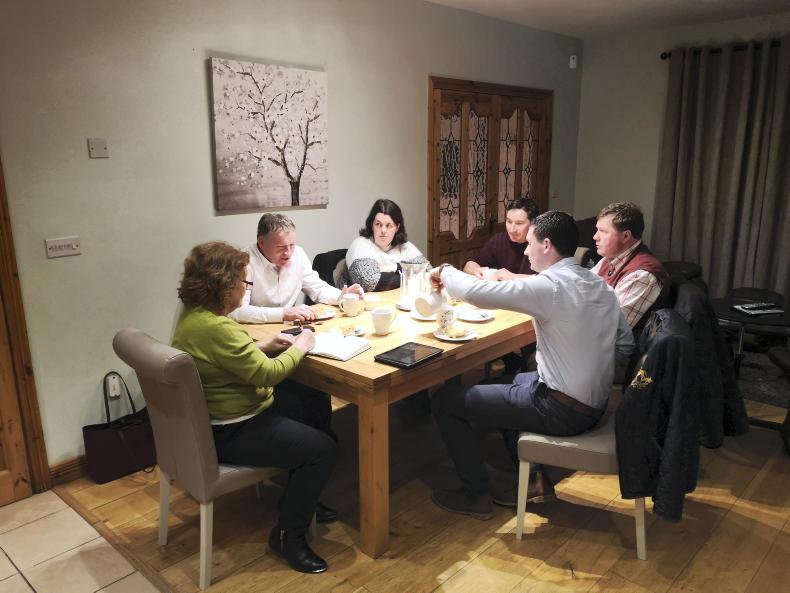
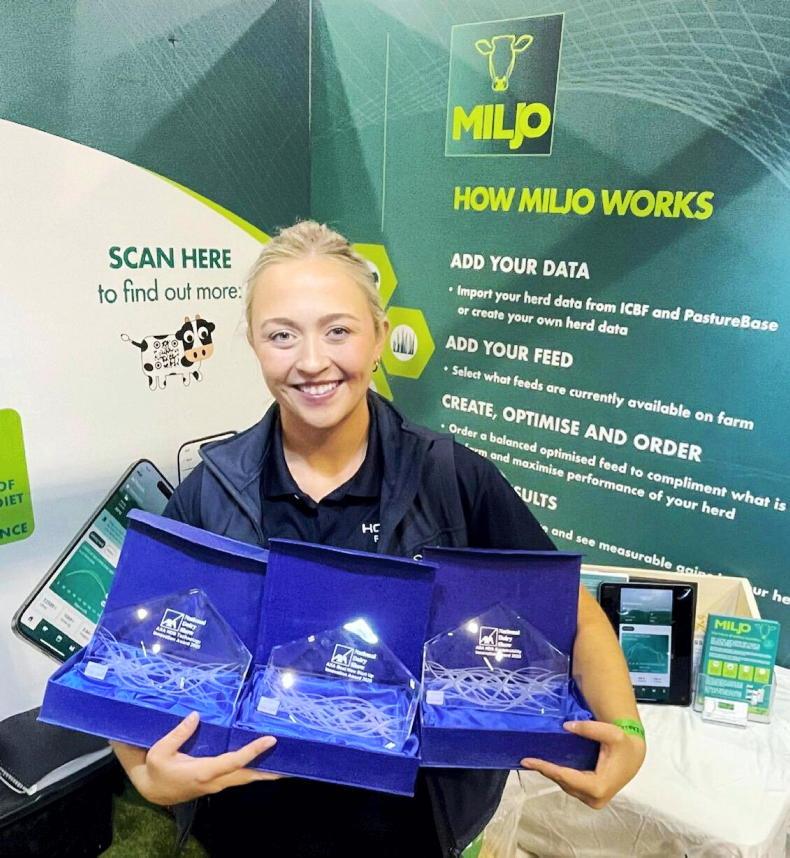
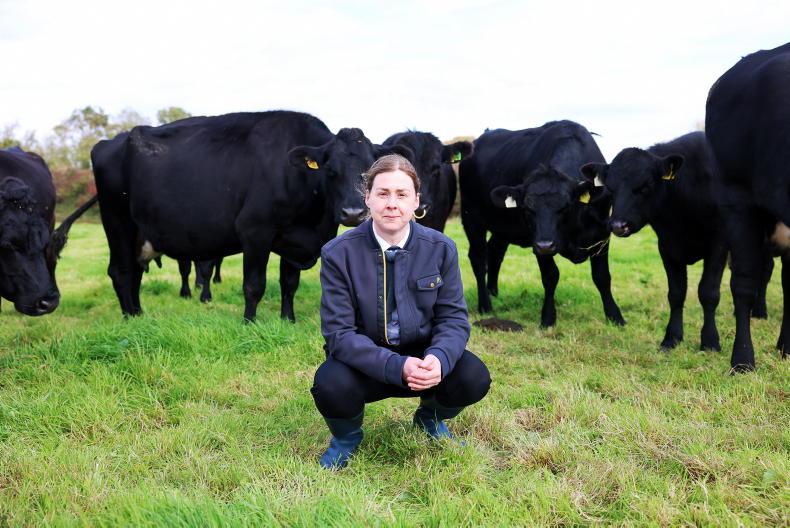
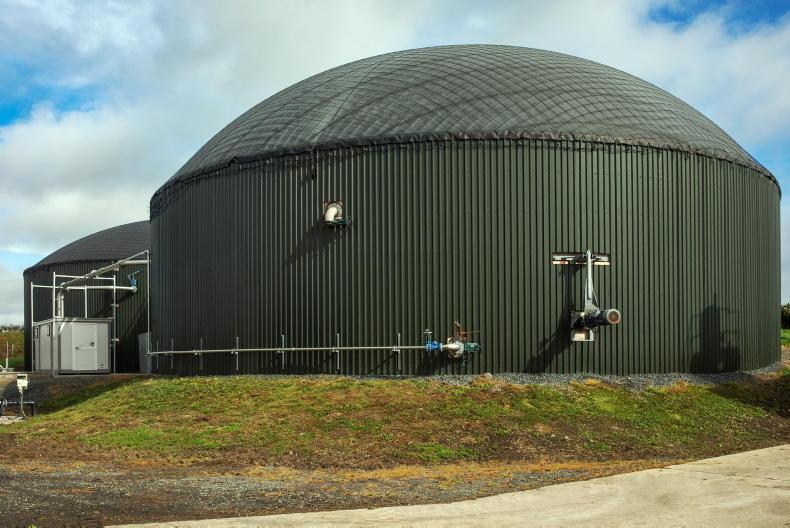
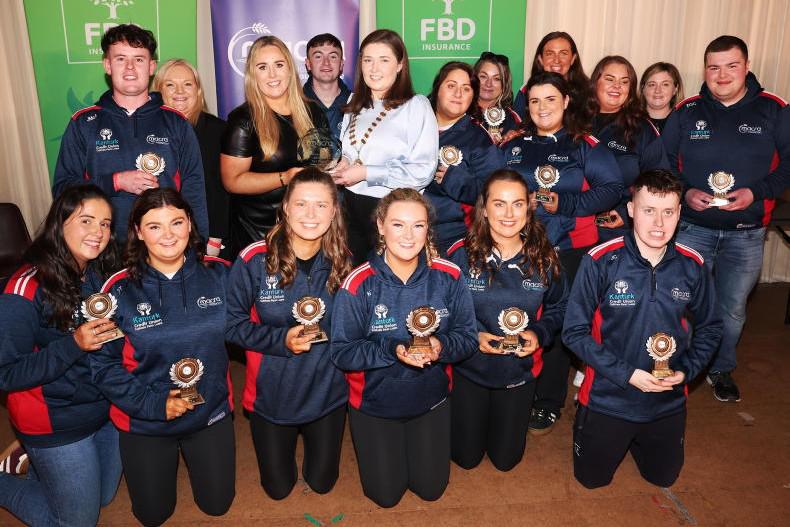
SHARING OPTIONS